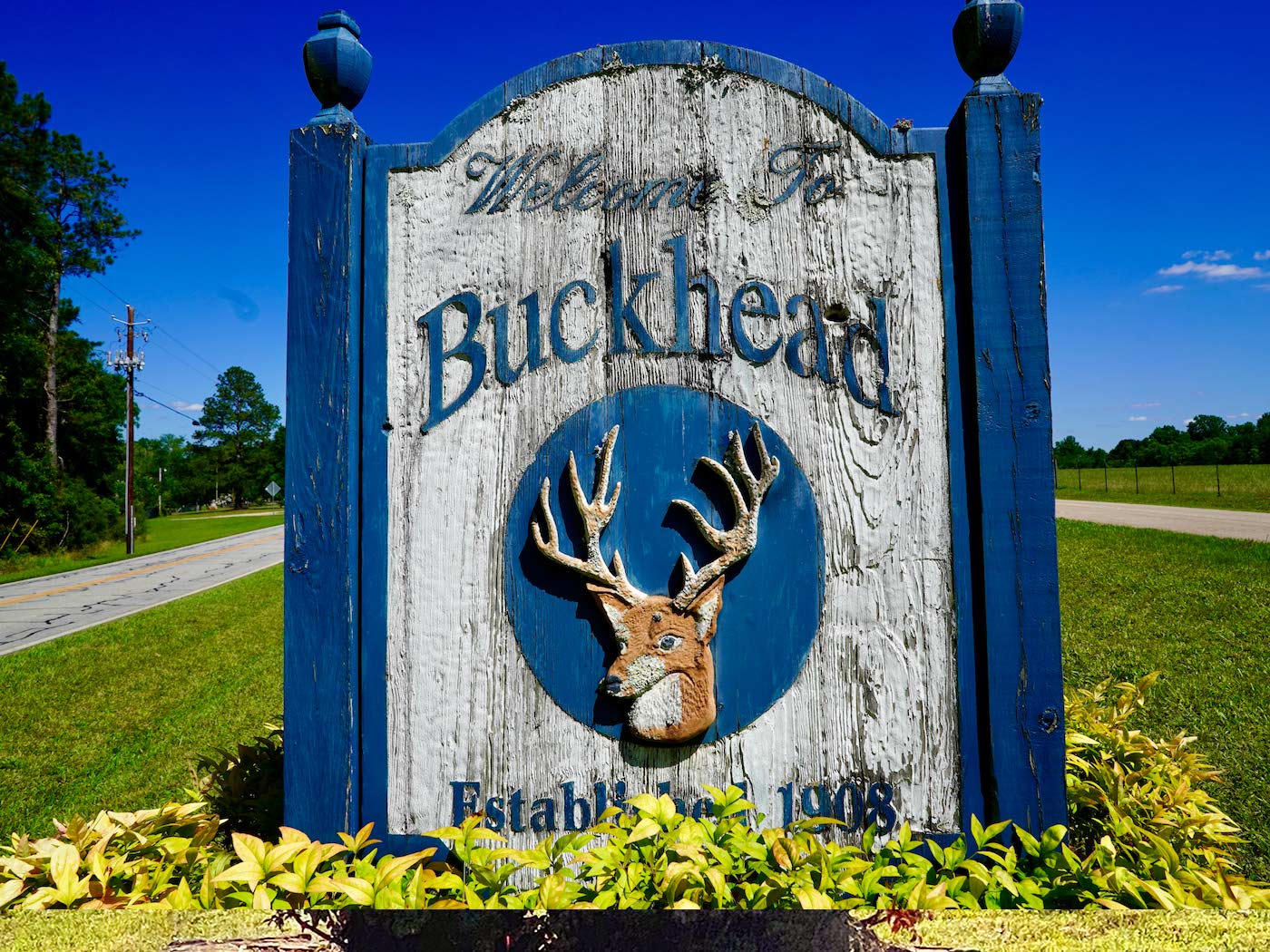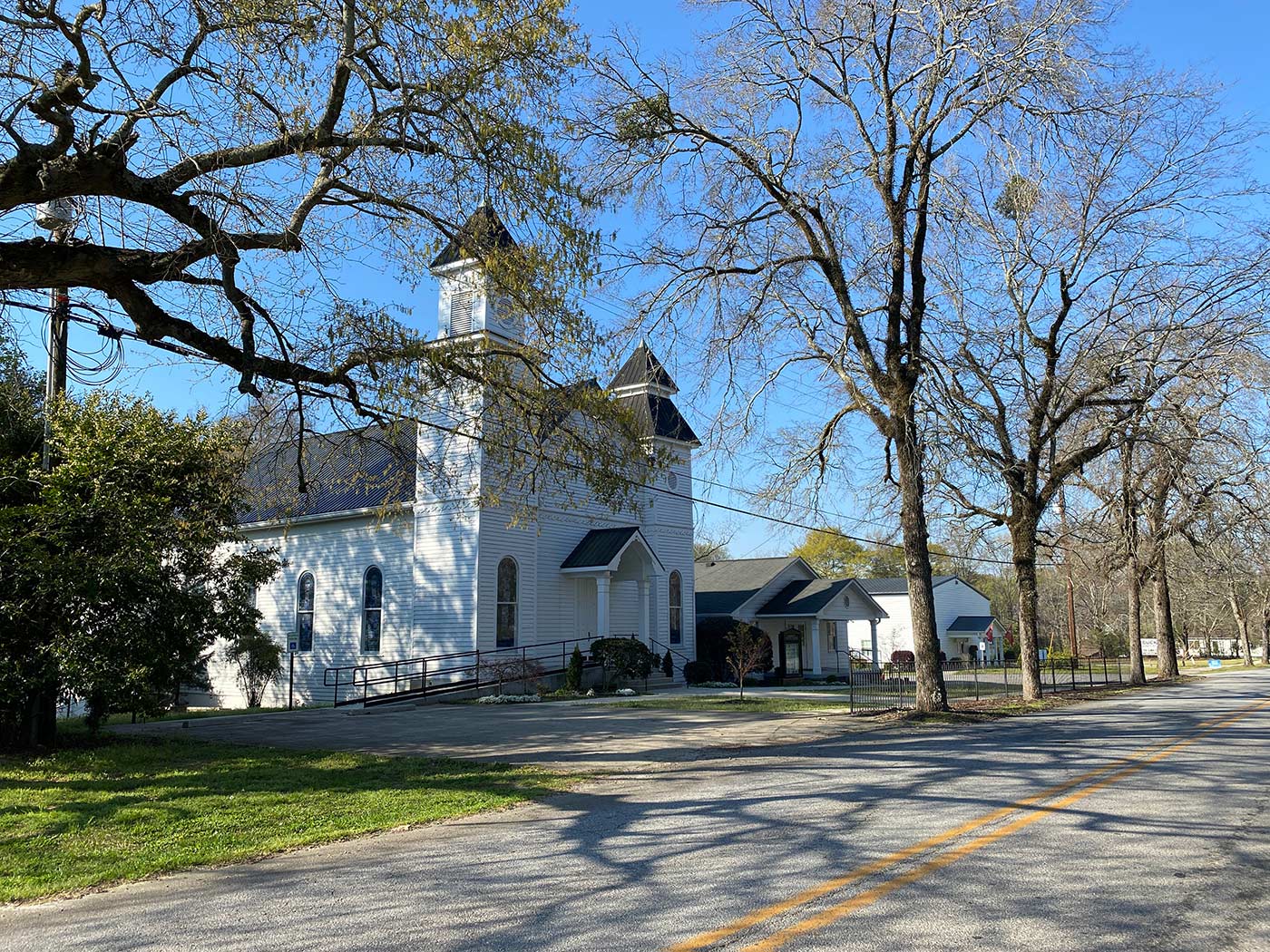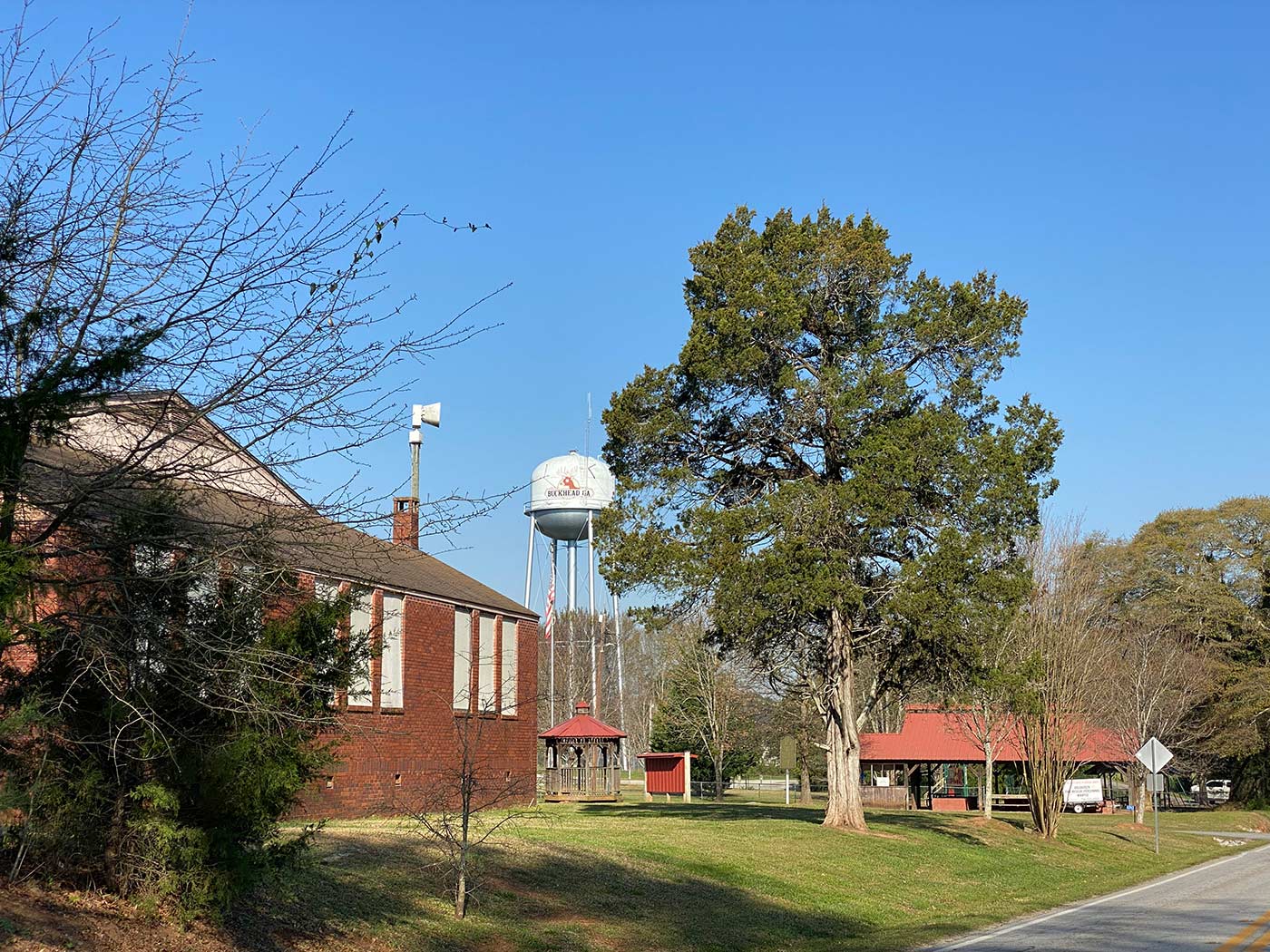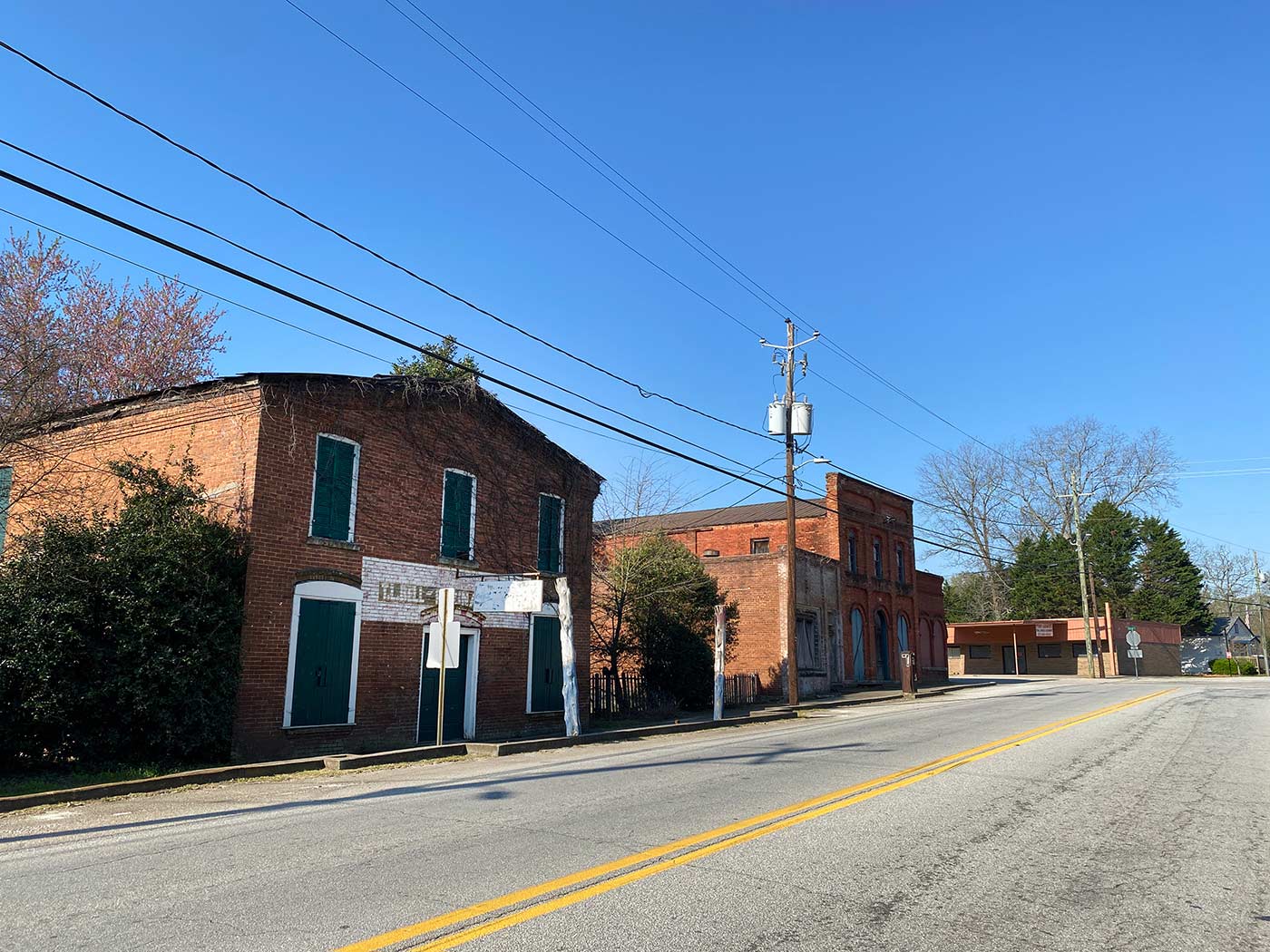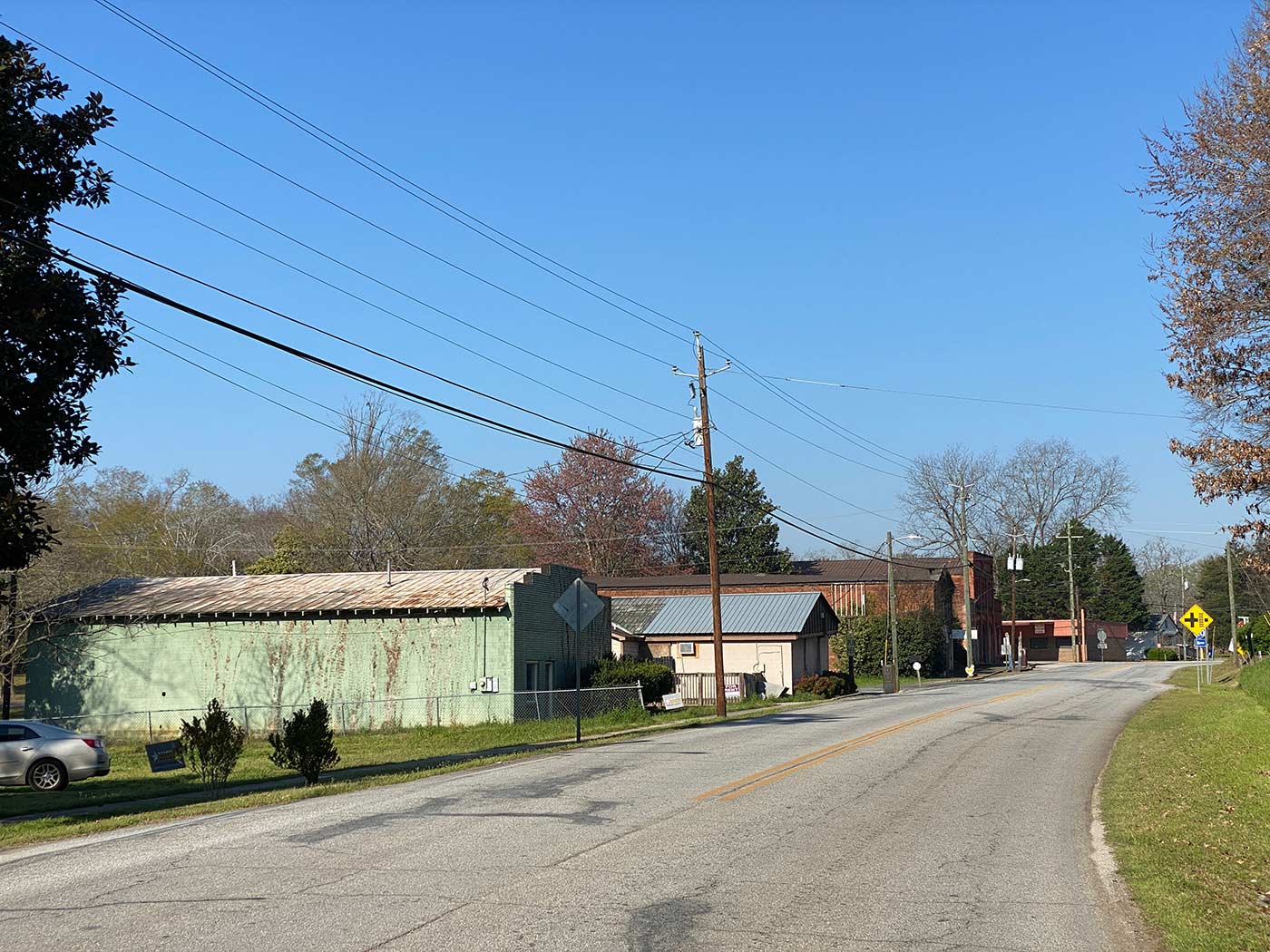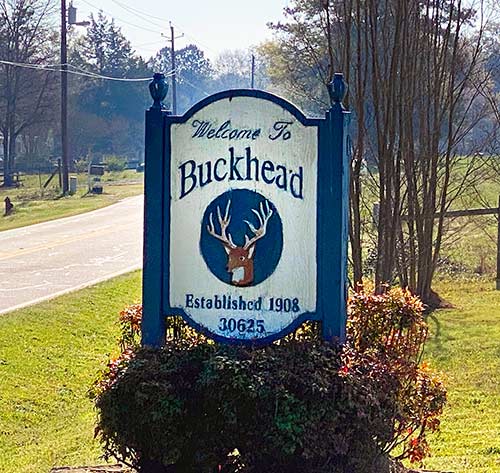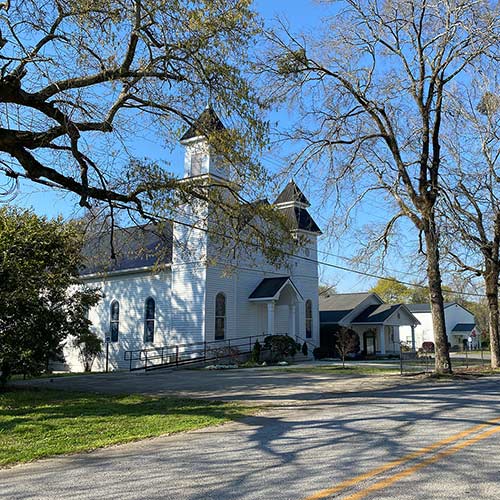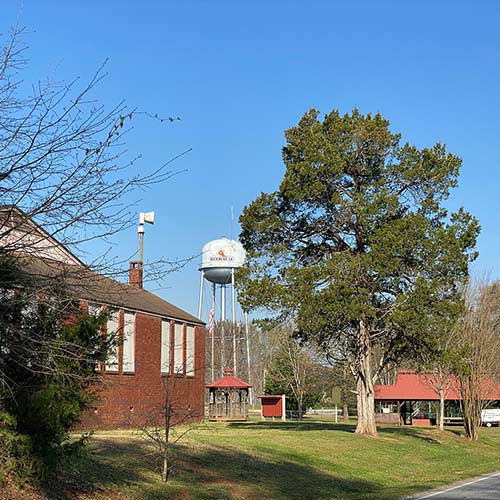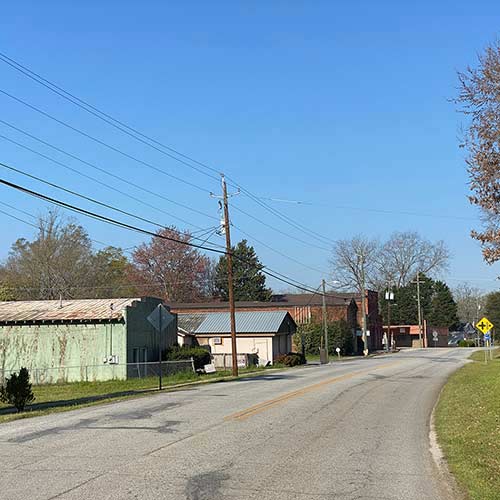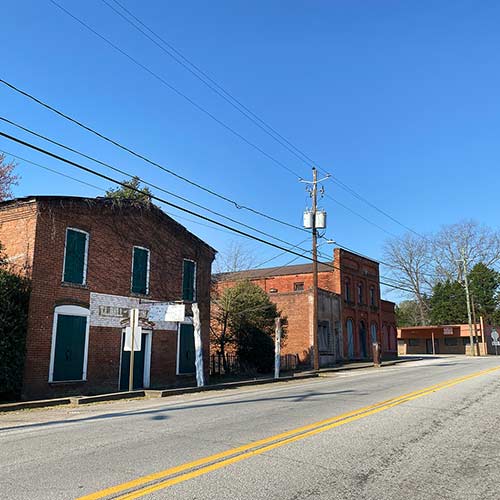Welcome to the Official Town of Buckhead
Located in Morgan County Georgia
Buckhead was one of the earliest settlements in Morgan County, its land being distributed originally in the land lottery of 1805.Even before this there were so called “trespassers” in the area. The beginnings of Buckhead have been passed down through generations about how Booth Fitzpatrick and his dog crossed the Apalachee River from Greene County to explore the new land. He found fertile soil, splendid hunting grounds and an abundance of game. He told his brothers about it and came back with several men. They camped at a spring and a branch, shot a huge buck and hung the head on a tree branch. He called the branch “Doe Branch” and the spring “Buckhead”. These names have survived all these years. The men returned home and spread the news about how great the land was and immediately an influx of white settlers came to the area. The Creek Indians seemed to tolerate their presence even before any treaties were made. In 1796, another brother, Rene Fitzpatrick, was sent over the river to select a farm. Benjamin then built a log cabin and settled here. Benjamin was a Revolutionary soldier that died in 1821 and is buried near Buckhead.
When Morgan County was laid out in 1807, part from Baldwin County, the area became known as the Buckhead District. Buckhead was not incorporated until 1887, and though recorded in the Morgan County courthouse, it was not recorded in the state office. The mayor and councilmen re-incorporated in 1908. Some of the earliest settlers in Buckhead were Fitzpatrick, Saffold, McWhorter, Gunn, Chivers, Brown, Baker, Davis, O’Flaherty, Bryant, Adams, Zachary, Alford, Paschal, Taylor, and Langford. In 1823 the first post office was established in Buckhead. in 1824 land was granted for a church and school. Both the Methodists and Baptists worshipped here until the Baptists formed their own congregation in 1890 and built a church. The Georgia Railroad came through in 1837.’The train used a turntable to turn around as it did not continue to Atlanta at this time. By 1845 the railroad continued to Atlanta. Buckhead was a thriving town at this time and was an important stop between Augusta and Atlanta. The town had several general merchandise stores, a meat market, cotton gin, livery stable, drug store, restaurants, blacksmith shop, corn mill, barber shop, millinery shop, sawmill, hotel and a bank. The town had a public well in the center of town for watering livestock and to fill water tanks used by the train. It is one of the oldest landmarks of Buckhead and is marked by a brass plate today. The jail was built in 1910 and still stands today. It is listed on the National Register of Historic Places and is included in the Historic District of Buckhead.
The Federal Raid marker in downtown Buckhead reads: ” On Saturday, November 19, 1864, Federal troops under Gen. Geary, Sherman’s 20th Army Corps, drove a small detachment of Confederate soldiers out of Buckhead, ate dinner and then destroyed the water tank, all railroad buildings and a large supply of cordwood. Moving out of Buckhead, the Federals destroyed the railroad to the Oconee River, there burning the bridge and railroad supplies. They destroyed gins and mills, 330 bales of cotton and 50,000 bushels of corn. That night they camped at Blue Springs (now Swords) on the plantation of Col. Lee Jordan.”
Buckhead survived several fires until a big fire destroyed most of downtown Buckhead in 1914. Many of these original buildings were not rebuilt. Two houses built long ago are still standing today. One built in 1835 by Dr. Seaborn Jones Saffold, the first known doctor in Morgan County and another built in 1896 by John O’Flaherty as a tavern for the railroad men and travelers. Several people remember that the granite stones used to build the tavern came by train from Stone Mountain. It is known today as the “Rock House”, also listed on the National Register of Historic Places. A two story brick store building is still standing and was built in 1890. Buckhead has been the site of three different school buildings. All have since either burned or have been demolished. The gymnasium built in 1939 is still standing today.
Calendar of Events
Work Sessions are 2nd Monday & Council Meetings are 3rd Monday of the month each at 7PM (no December meetings)
Elected Officials
Mayor
Steve Bryant
Councilmember
Thomas Bell
Councilmember
Richard Harris
Councilmember
Coleen Sims
Mayor Pro Tem
John White
Appointed Officials
City Attorney
Ben Fierman
City Clerk
Cheryl Saffold

